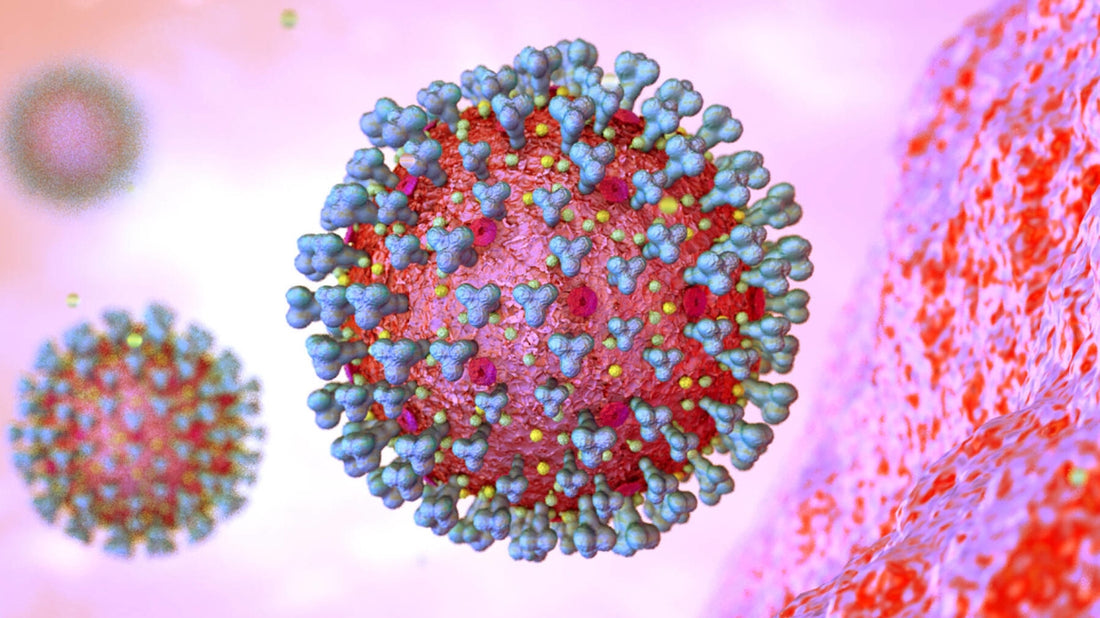
HPV (human papillomavirus) Prevention with Herbal Formulation
The majority of HPV infections do not result in cancer. However, some strains of genital HPV can develop cancer of the lower uterus, which attaches to the vaginal canal (cervix). Other malignancies have been associated to HPV infection. These illnesses are frequently transmitted by sexual intercourse or other forms of skin-to-skin contact. Vaccines can help protect against HPV types that cause genital warts and cervical cancer. Intercourse isn't required for transmission of HPV because it's a skin-to-skin infection.
Symptoms of HPV Infection
When warts do form, their appearance varies depending on the kind of HPV that is causing them:
- Genital warts: Flat lesions, small cauliflower-like pimples, or tiny stem-like protrusions can all be seen. Genital warts are most commonly found on the vulva in women, but they can also be found near the anus, on the cervix, or in the vagina.
- Common warts: Common warts are rough, raised bumps that most commonly arise on the arms and hands. Common warts are ugly in most situations, but they can also be unpleasant or prone to damage or bleeding.
- Plantar warts: Plantar warts are rough, gritty growths on the heels or balls of your foot. These warts could be bothersome.
- Flat warts: Flat warts are slightly elevated lesions with a flat top.
Symptoms also include, The HPV varieties that cause warts are distinct from those that cause malignancy. So, having HPV-caused genital warts does not imply you'll get cancer.
HPV-related cancers frequently do not manifest symptoms until the cancer has progressed to a more advanced stage. Regular tests can aid in the early detection of HPV-related health issues. This can help to improve one's attitude and chances of survival.
Infections with the human papillomavirus (HPV) can be caused by a number of circumstances, including:
- Age: The majority of people who get common warts are children. Adolescents and young adults are the most common victims of genital warts.
- Immune system weakness: People with compromised immune systems are more susceptible to HPV infections. HIV/AIDS and immune system-suppressing medicines used after organ transplants can decrease immune systems.
- Damaged skin: Common warts are more likely to form in areas of skin that have been punctured or Damaged skin: Common warts are more likely to form in areas of skin that have been punctured.
- Through Inter-course: Touching someone's warts or not wearing protective clothing before accessing HPV-infected surfaces, such as public showers or swimming pools, may raise your chance of infection.
Causes of HPV Infection
- The virus infects you when it enters your body by a cut, abrasion, or a small tear in your skin. Skin-to-skin contact is the most common way for the virus to spread.
- HPV infections in the vaginal region are transmitted through sexual contact, and other skin-to-skin interaction.
- Warts can be spread from person to person. Direct touch with a wart might cause them to spread. Warts can also spread if someone comes into contact with something that has already been touched by a wart.
Vaccines against HPV
The Food and Drug Administration has authorized three HPV vaccinations. Gardasil 9, the latest, is a vaccine that protects against cervical cancer and genital warts in males and females aged 9 to 45.
Routine HPV vaccination is recommended by the Centers for Disease Control and Prevention (CDC) for girls and boys aged 11 and 12, while it can be given as early as age 9.
It's best if girls and boys get the vaccine before having sexual contact and becoming infected with HPV. According to research, getting the vaccine while you're young isn't associated to starting sexual activity sooner.
Role of HPV Basant
BASANT is a special herbal formulation for treating the Human papillomavirus (HPV), a sexually transmitted disease (STD) that affects a large population in both rural and urban settings. HPV is frequently identified as a risk factor for cervical cancer. Cervical cancer is the second most common malignancy in women. No therapeutic method has been proven to be successful and safe in the treatment of established cervical human papillomavirus (HPV) infection to yet.
What is the process of BASANT?
By preventing the entry of HPV-16 into Hela cells, BASANT acts as a preventive and therapeutic therapy for Human Papilloma Virus (HPV).
So long as the viral genome is not integrated into the host genome, it has the amazing virtue of removing HPV-16 from infected cervical cells, putting them on the route to choriocarcinoma.
Technology Transfer
Prof. G.P. Talwar, former Director of the National Institute of Immunology (NII), now heads the Talwar Research Foundation, a Scientific and Industrial Research Organization (SIRO) registered by the Department of Science and Technology, Government of India. Dr. Talwar is a Padma Bhushan awardee as well as a Lifetime Achievement Awardee.

On June 1, 2017, Biotech Consortium India Limited (BCIL) handed the technology to M/s Bipha Drug Laboratories (Pvt.) Ltd, Kottayam, Kerala.

